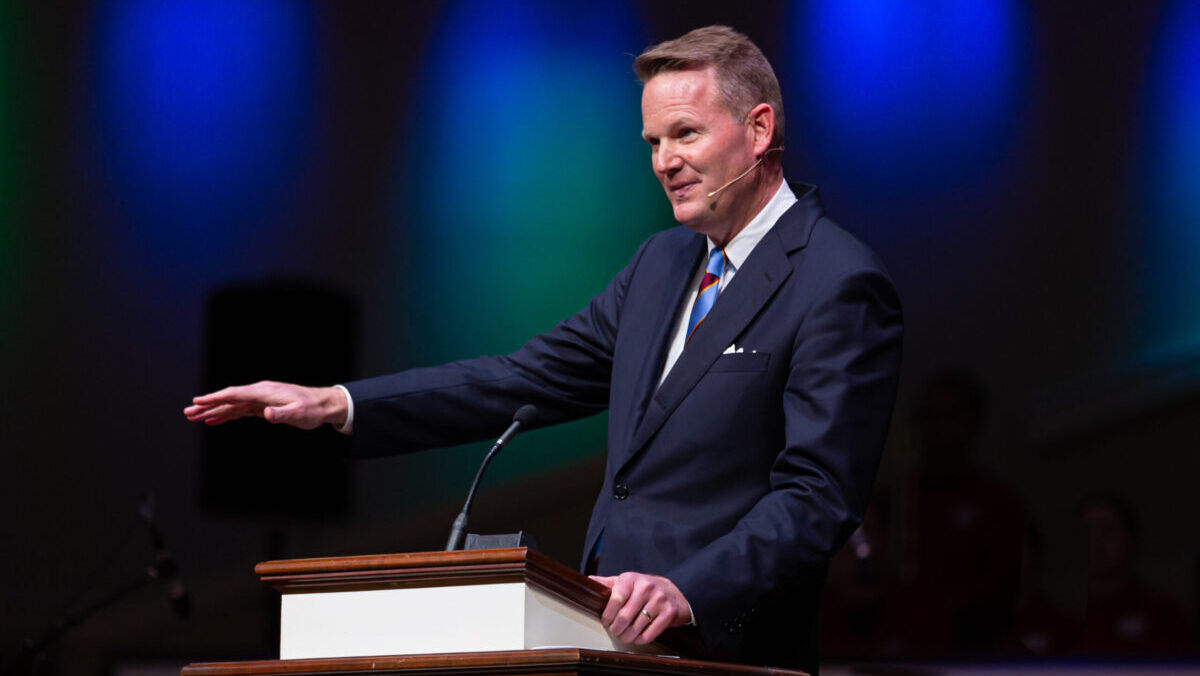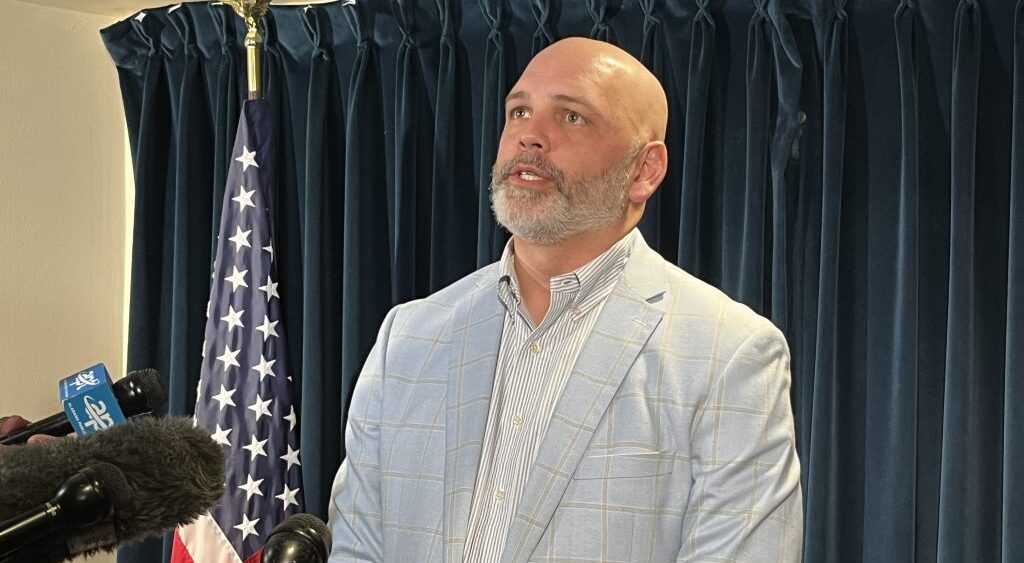Jason Allen promised he wouldn’t sing the song, but he said he knew everyone in the room knew a few things about Zacchaeus, the short tax collector who climbed the tree to see Jesus.
It’s such a familiar story that it’s “easy to miss the power of what takes place,” said Allen, president of Midwestern Baptist Theological Seminary in Kansas City, Missouri.
Preaching from Luke 19:1–10, he shared with those present at the Tuesday evening session of the Alabama Baptist State Convention annual meeting Nov. 12 that “in this text we celebrate anew our Lord and Savior Jesus Christ who goes about His ministry … changing lives.”
Allen challenged his listeners to reflect on three parts of the passage.
- The sinner Jesus sought.
What about Zacchaeus commends him to Jesus? What makes him particularly attractive?
Zacchaeus was in a job that made him one of the least-liked people in any room, Allen said. In his job as chief tax collector, he dealt corruptly and cheated people out of money.
But “something was stirring in him,” Allen said. He was curious and determined to run ahead and climb the tree so he could see Jesus.
“The work of the Spirit is drawing him to Christ, it’s drawing him to take a closer look,” Allen said. “Jesus states His intent to go to his house … and we begin to see Jesus chipping away at the heart of this short little tax collector.”
To answer the question, there’s nothing objective about Zacchaeus’ soul that says it’s of worth, Allen said. “But Jesus is a Savior of affection and compassion. And He sees this man and He loves this man and He knows that he is hopelessly lost, but He sets His affection on Him. … Jesus looks at the most unlikely convert in the city and says, ‘He’s the one.’”
And ultimately, Jesus would die for that sinner, Allen said.
- The salvation Jesus wrought.
The next scene details Zacchaeus’ quick obedience — he comes down from the tree, joyfully receives Jesus and begins publicly confessing his sin.
“We see Jesus bringing about salvation in the heart of this sinner,” Allen said.
It’s happy obedience, he said. “There is a joy welling up in his heart and a happiness flourishing because all the corruption, emptiness, deceit and hatred, all of it in a moment is going away, and Zacchaeus is there and he’s wanting it.”
He is not shedding tears over the fact he’s closing up his business, Allen said. “He knows he can have all the money in Jericho and still be the saddest guy in Jericho.”
In a way, he’s the opposite of the rich young ruler who came to Jesus under cover of night, heard what he would have to give up and then went away sad.
“When the Spirit gets ahold of a sinner, they’re no longer negotiating,” Allen said. “When the spirit cultivates repentance, it’s surrender, not present your terms. When the Spirit awakens a sinner and brings new life, it is not posturing, it is not politicking, it is, ‘Yes, Lord, take it all.’”
Allen said he is convinced today’s generation of pastors and church members know too little about repentance. It’s a forgotten word, he said.
“When is the last time you heard a clear, strong sermon about repentance? Without repentance there is no conversion, no renewal, no revival,” he said.
- The sermon Jesus brought.
At the end of this passage, Jesus gives a brief sermon starting with, “Today salvation has come to this house.”
He says, in what can only be classified as a rebuke, that Zacchaeus was a true son of Abraham, Allen said. In a time when Jews were preoccupied with the purity of their people, He said Zacchaeus was the only kind of son of Abraham that really mattered.
Then Jesus told them that “the Son of Man had come to seek and save that which was lost.”
“He said, ‘This is not an aberration of my ministry, this is not a distraction, this is why I exist. This is what I’m about,’” Allen said. “The glorious thing for thousands of churches, the Alabama Baptist State Convention, the hundreds of ministers in the room tonight, you get to be about the work of following the Master as His representatives, His agents to seek and to save that which was lost.”






Share with others: